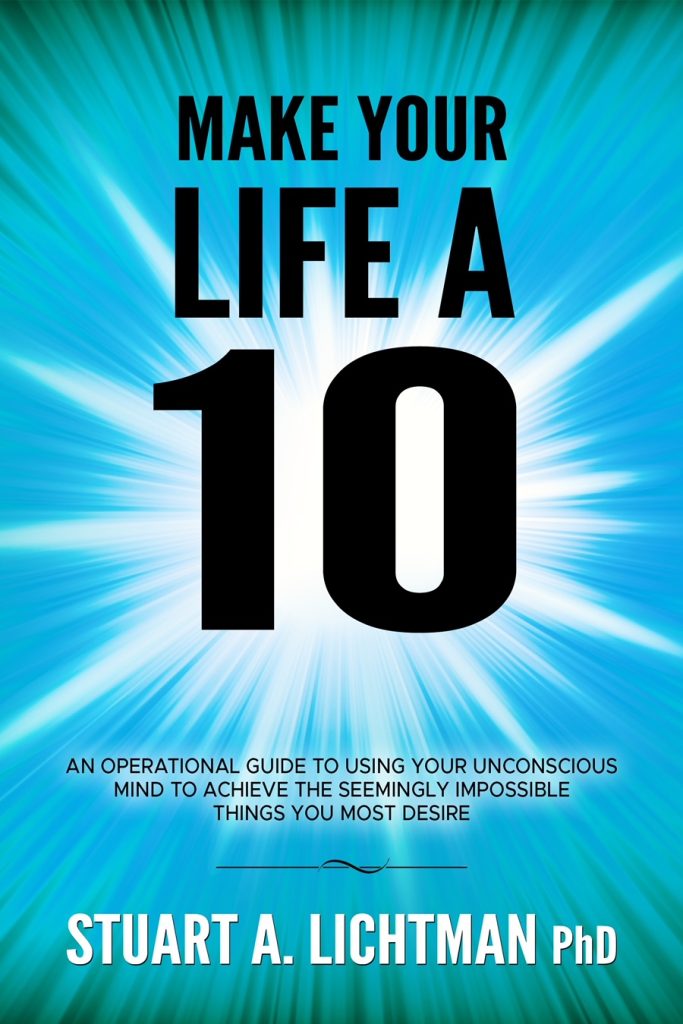I am blessed with Asperger Syndrome.
That means I can’t naturally connect with people. From the time I was young, machines and books made sense to me, but I struggled to understand people. As a result, I’ve always worked alone or one on one. Even when teaching 30 to 350 person groups, sharing interactions always took place one on one.
Some might consider that an obstacle, but Asperger’s has a glorious upside: it can bring the kind of brilliance that Albert Einstein, Michelangelo, Steve Jobs and Elon Musk share(d), as do I. This can lead to initiatives—and great success.
For example, when I was an undergrad at MIT, I was so baffled by human unpredictability that I developed a way to model, predict, and account for human behavior. This ultimately became the basis for my PhD dissertation. While conducting the research, I invented a system that used artificial intelligence pattern recognition techniques to model decision-making, long before artificial intelligence was a household word. After I graduated, I built a consulting business that applied my artificial intelligence system to sophisticated market and economic research on behalf of the US government and Fortune 500 companies all over the world. It was wildly successful, and it kept me very busy, traveling around the world monthly.
The same brilliance also comes with the ability to see straight through to the simple heart of any matter. As Einstein said, “The definition of genius is taking the complex and making it simple.”
This can be very useful for entrepreneurs—and was for me. In addition to my consulting business, I entered the field of real estate development with neither a mentor nor knowledge of the field. I invented ways of building a small “empire” of projects consisting of 4 subdivisions and a garden apartment complex. Unfortunately, although the idea took off, my venture failed when the first cyclical downturn came. Seeing the heart of the matter is one thing; being prepared for pitfalls is another.
Having learned my lesson about preparedness, I ultimately launched numerous other entrepreneurial ventures whose successes include raising $2.5 million (equivalent to $20 million today) in five days—from first contact to money in the bank—to start an AI venture which I later sold to the investor. I was able to raise the money thanks in part to two methods I developed, which I describe in my new book, Make Your Life a 10.

Here are some of the other ways Asperger’s has helped me as an entrepreneur:
Jump to the core of an idea
Most entrepreneurs waste almost all their time trying to do this by trying and failing. The lucky one gets the point before their venture fails. I have been able to get straight to the winning core of what I was creating because I knew exactly what that was.
As the saying goes, if you don’t know where you’re going, any road will take you there. And “any road” is usually the path to failure. So, homing in on both the core essence so you focus on what directly contributes and the pitfalls before you fall into them is key.
Get both successful and unsuccessful entrepreneurs to answer two invaluable questions
First, “what do I absolutely have to do to become successful in this venture?” And second, “What must I absolutely avoid to avoid failing in this venture?”
These questions sound simple, but in order to answer them quickly enough to take action in a timely way, you must be able to see straight through to the simple heart of a matter. Without this ability, it can even be difficult to answer them at all.
Hear the key words people use – and insert them into conversation
Whether you want to learn from somebody or are working through a business transaction with them, it can be a huge advantage to be able to listen carefully to their key words and insert those keywords into your own questions and responses. For example, if you were responding to what I just said, you might say, “Please give me some examples of such key words.” Doing so helps with the process of assimilating other people’s ideas while creating an intuitive connection that leads them to open up to you. Picking up on keywords is an ability my Asperger’s enhances. It’s extremely helpful for learning, negotiating and closing deals.
While Asperger’s syndrome presents unique challenges in social situations, it can also bring unique strengths to entrepreneurship. By honing in on the core essence of an idea and identifying potential pitfalls, individuals with Asperger’s can be successful entrepreneurs.

Stuart Lichtman is an executive, an entrepreneur, a researcher, consultant, trainer and coach. He has trained over 50,000 people around the world—including CEOs and heads of state—to achieve goals that seem, at first, to be impossible by consciously managing their unconscious minds using the Cybernetic Transposition Process he developed. Creator of the Arintel artificial intelligence data analysis program, he has directed or run 100 companies.
Stuart’s formal education includes undergraduate and graduate work at MIT in engineering, psychology, and artificial intelligence, masters work in applied psychology, and doctoral work in organization development and cross cultural business. He has also conducted extensive research on the unconscious/intuitive bases of success and the individual and collective operation of the human mind.
He is the author of five books, including “The Art of Success, Luck, and Harmony”, “The Impossible as a Matter of Course”, and “How to Get Lots of Money for Anything—Fast” and, most recently, Make Your Life a 10: How to Successfully Do, Have or Be Anything You Want.










